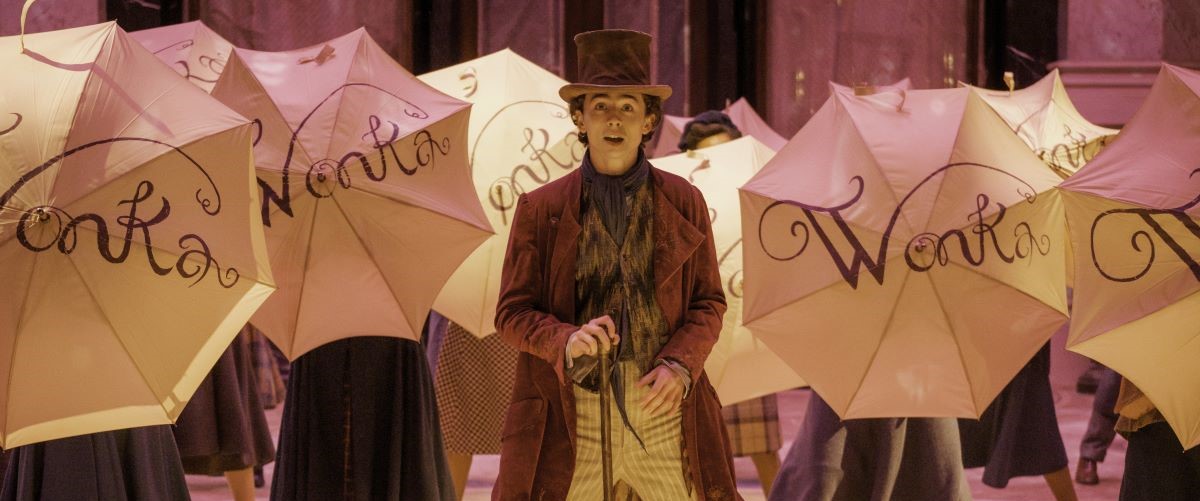
Now streaming on:
"Candy doesn't have to have a point. That's why it's candy."
That's what candy-maker Willy Wonka told one of the kids visiting his factory in 2005's "Charlie and the Chocolate Factory." Inspired by Roald Dahl's Wonka books but not beholden to them, filmmaker Paul King's prequel "Wonka" illustrates that maxim in a breezy two-hour musical comedy. The film hopes to make the audience shed a sentimental tear or two, but is mainly content to amuse, delight, and inspire cheers when the bad guys are defeated. The performances, costumes, songs and choreography are probably better than they needed to be to make a hit of this project, which is, as executives like to put it, a pre-sold property (who doesn't know and love Willy Wonka?).
It's all formulaic, for sure—proudly so, with self-referential jokes and outrageous puns so numerous that they would be insufferable if they weren't charming. King, cowriter Simon Farnaby and their collaborators get the tone just right from the very beginning and never lose control of it, or the pacing for that matter, and although there are satirical or metaphorical touches that aren't too hard to see if you're looking for them, they're presented with a throwaway sensibility, often as sight gags, so as not to salt the candy to the point where it drowns out the sweetness.
Wonka (Timothee Chalamet) and the film's other main character, the resilient, resourceful Noodle (Calah Lane)—who becomes his best friend and partner in adventure—are plucky orphans, which automatically renders them sympathetic. Wonka even carries around the last chocolate bar created by his mom, a candy-maker who raised him in the jungle, and stares at it whenever he needs inspiration. (Mama Wonka is played in flashbacks by Sally Hawkins, who's become a good luck charm for big-budget fantasies.) The main bad guys are a triumvirate of all-powerful businessmen (Paterson Joseph's Slugworth, Matt Lucas's Prodnose, and Matthew Banton's Fickelgruber) who control the manufacturing and distribution of candy, keep the city's corrupt police force under their thumbs (including the chocoholic chief of police, played by Keegan Michael Key), and have gotten laws passed that make it almost impossible for anybody else to break into the business. The central storyline of young Wonka trying to succeed as a chocolatier is a variation of a Horatio Alger-inspired template that often begins with an eager young man from the country stepping off a bus in a big city wearing an old suit and a tattered straw hat and carrying sticker-covered suitcases that get stolen they instant he sets them down.
"The greedy beat the needy every time," Wonka is warned by another character. The script illustrates that idea from its opening musical sequence, which shows Wonka spending the 12 measly sovereigns he has in his pocket on such legally mandatory expenses as a fine for daydreaming. He's taken in by a seemingly kindhearted local innkeeper (Olivia Colman's Mrs. Scrubbit) and her right-hand man, a looming, bass-voiced dunderhead named Bleacher (Tom Davis), only to belatedly figure out that once he signed into the hotel, he agreed to pay the bill with his own labor if necessary, and every single thing he does adds a new charge to the bottom line, including walking upstairs to his room. (The constant fines levied on all but the rich are a Dahl-like touch, bordering on Dickensian. Ditto the cruel characters' tendency to manhandle, club and kick the powerless, including Noodle, who's just a kid.)
Wonka ends up toiling in a basement laundry processing facility with other indentured servants, including Abacus Crunch (Jim Carter), a onetime accountant to Slugworth, and Noodle, who quickly bonds with Wonka, creating a sibling-like dynamic that's one of the freshest, most appealing aspects of the story. Wonka's wish to liberate his buddies purifies his desire to succeed in the chocolate business: he's not just doing it for himself and his mum, he's doing it for them, too. But it's a rocky road to victory. The script is relentless in its willingness to force Wonka to take two steps back for each step forward (something Chalamet actually does in a scene where he's walking down the steps—you don't often see a metaphor conveyed by an actor's footwork).
Even the most elaborate plans unravel due to unforeseen circumstances or the villains’ influence, requiring on-the-spot improvisation, which fortunately is something Wonka and Noodle are good at. And when all else fails, this is a fantasy—sometimes a cartoonish one. We're never entirely clear on how many resources the down-and-out Wonka actually has at his disposal, and what we do see makes us wonder if he's an otherworldly creature whose only limitations are conditioning or psychology. The chocolate-making "travel kit" that he carries is practically a tiny factory that seems to have its own power source. When he finally does get to open his own chocolate shop (come on, now, like you thought he wouldn't get to do it?) it's up and running overnight, without a worry as to where to get the money, the materials, the permits, and the army of contractors required to make it happen. It's all quite cheeky, though, like the transition in "The Blues Brothers" where Cab Calloway is told that he needs to stall for time at the theater where the big show is supposed to occur, and there's a cut to a curtain going up to reveal Calloway and the band in on a 1930s Art Deco set wearing white tuxedos and launching into "Minnie the Moocher."
"Wonka" is not only unapologetic in its contrivances, manipulations, and absurdist embellishments, it lets its goodhearted trickster hero and a few other characters comment upon them—not as blatantly as a Bugs Bunny or Deadpool might, but practically. Nathan Crowley's production design, Lindy Hemming's costumes, and Chung-hoo Chung's cinematography create a universe that has a certain grittiness and is connected to reality through economic distress, but is otherwise the audiovisual equivalent of one of Wonka's candies. There's a class system here, and the one percent rules over everyone else. But there's no racism (it’s a multicultural cast). "Wonka" avoids complaints that Wonka's future factory workers, the Oompa-Loompas, are imperialistic caricatures of nonwhite people by casting Hugh Grant as the lone example, a chocolate thief who visits Wonka when he's asleep, and making him sort of an English leprechaun obsessed with his own version of the fabled pot-o'-gold. Dahl's tendency to equate conventional beauty with virtue and ugliness with nonstandard body types is also mostly AWOL here, save for the the running gag of having the corrupt police chief swell up from all the bribe candy he consumes.
The city Wonka conquers is sort of London and sort of Paris, with pieces from other places. But it feels more like an old/new city from a fantasy or science fiction film, a storybook, or a graphic novel—like the cities showcased in "The French Dispatch," "Amelie" and "Moulin Rouge." The performances are mostly exceptional (Colman and Grant, as usual, are standouts), though the script fails a few of the actors in the laundry room by not filling out their stories.
Another (frankly puzzling) drawback is the cinematography, which has a gorgeous silvery look in flashbacks and certain daylight scenes, but at night and in dim locations looks as washed-out and indifferently composed as a "Netflix original." (Is the inconsistency because of reshoots?) Whatever else you could say against Tim Burton's 2005 Wonka film, it looked great from top-to-bottom, and every composition popped.
As for the music: writing this piece, I can't hum or quote the new songs. But I remember enjoying them while they were happening—particularly the one in the first sequence, when Wonka is separated from his money. Hits from the 1971 adaptation are reprised here (notably the Oompa Loompa song and "Pure Imagination," also quoted in Joby Talbot's score), no doubt because the audience expects them. They may serve as Pavlovian tear-triggers for viewers of older generations. This is, of course, the sort of reaction that "intellectual property"-driven productions like this one live for. The approach isn't hugely different from that of yet another Batman movie, or a Disney prequel like "Cruella." (The cop corruption stuff is similar to "The Batman.")
But for the most part, "Wonka" is so good at what it does that the question of whether it's a cynical enterprise becomes moot. It's as enthusiastic yet inscrutable as Wonka himself, played with an elegantly withholding quality by Chalamet, who in moments of quiet contemplation and madcap inspiration could be Gene Wilder's long-lost grandchild.
Matt Zoller Seitz is the Editor at Large of RogerEbert.com, TV critic for New York Magazine and Vulture.com, and a finalist for the Pulitzer Prize in criticism.
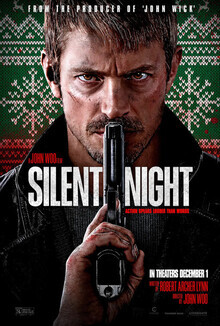
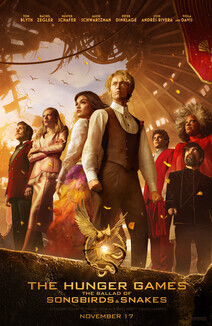
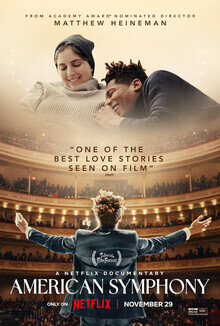
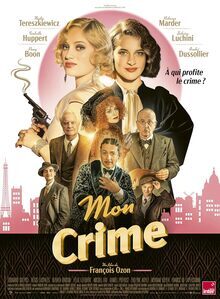
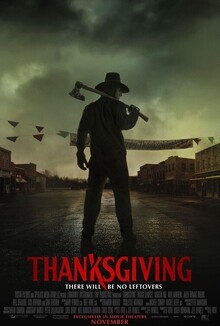
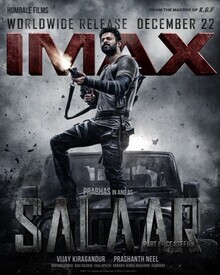
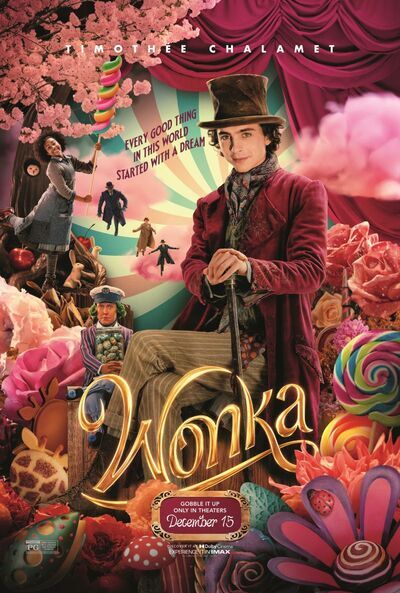
117 minutes
Timothée Chalamet as Willy Wonka
Calah Lane as Noodle
Keegan Michael Key as Chief of Police
Olivia Colman as Mrs. Scrubbit
Rowan Atkinson as Father Julius
Hugh Grant as Oompa-Loompa
Sally Hawkins as Willy Wonka's Mother
Matt Lucas as Prodnose
Natasha Rothwell as Piper Benz